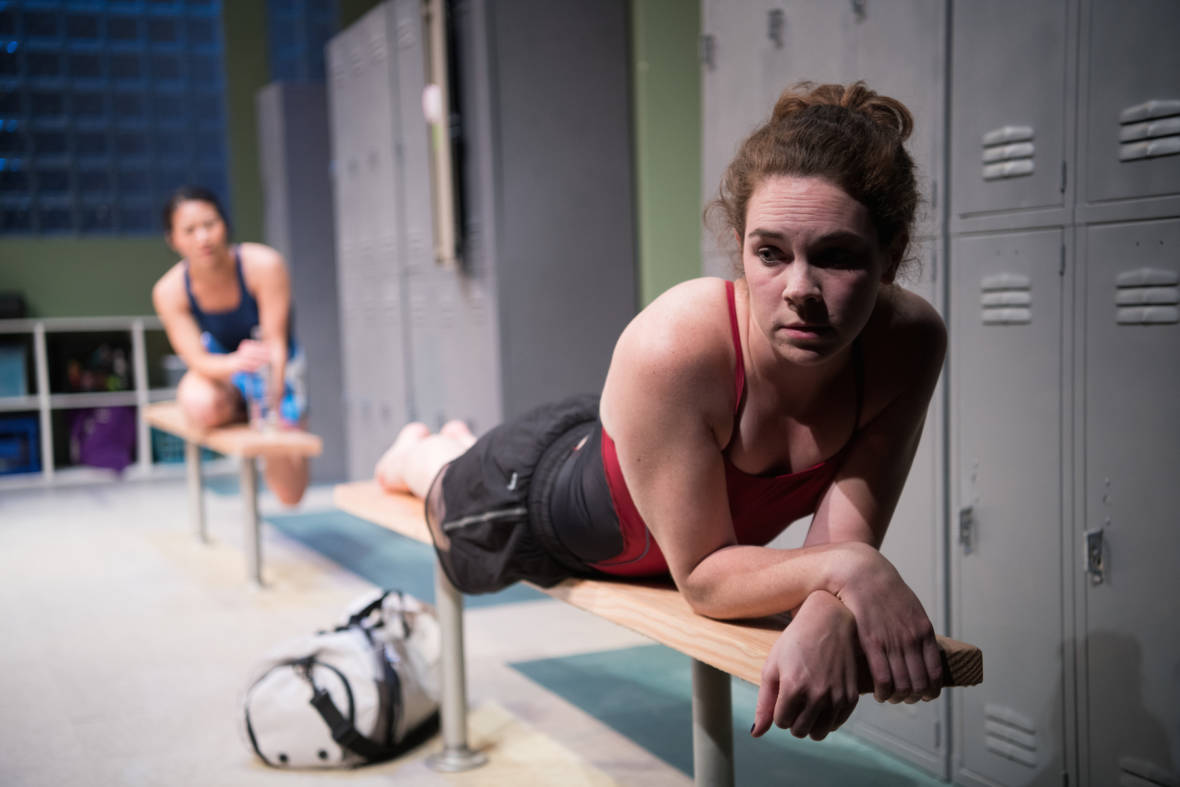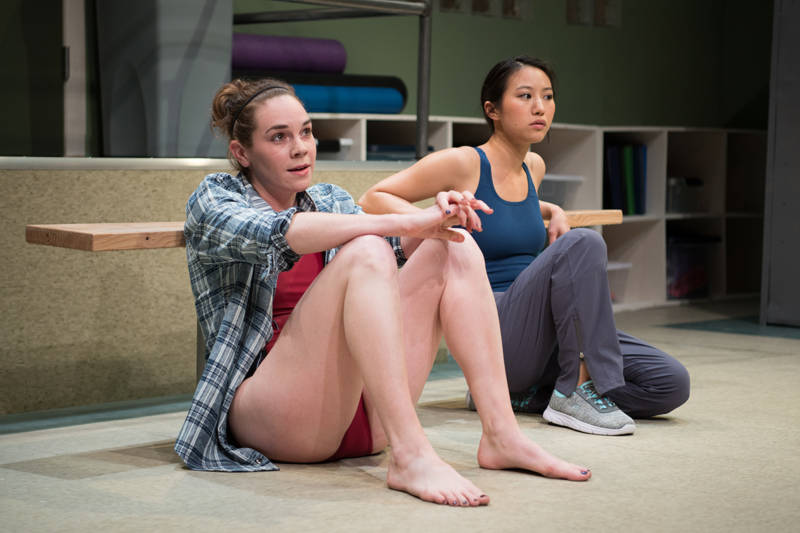In 2012, an article by Ada Calhoun in the New Republic about DIY abortions, including the use of “abortion pills” purchased online, caught budding playwright Ruby Rae Spiegel’s attention.
An undergrad at Yale, she penned her first full-length play Dry Land using that scenario as the nucleus of a script that also examines the volatility of teenage friendships and the emotional highs and lows of high school ambition. Directed for Shotgun Players in its first Bay Area run by rising star Ariel Craft (who takes over artistic direction of San Francisco’s Cutting Ball Theater in July), Dry Land both shocks and educates.
Set primarily in the sterile confines of a high school locker room (designed by Angrette McCloskey), the play begins on an uncomfortable note with Amy (played by Martha Brigham) demanding that Ester (Grace Ng) punch her in the stomach.
“Harder,” she commands, frustrated by Ester’s inability to muster sufficient force. “I’ve never done this before,” Ester retorts in a teenager’s sulk, and you can almost hear the “duh” in her voice as she steels herself to try again. As she gradually acclimates to the task at hand, so too does the audience acclimate to the story being told—no small triumph for a play that puts that still-taboo topic of teenage abortion on full display.
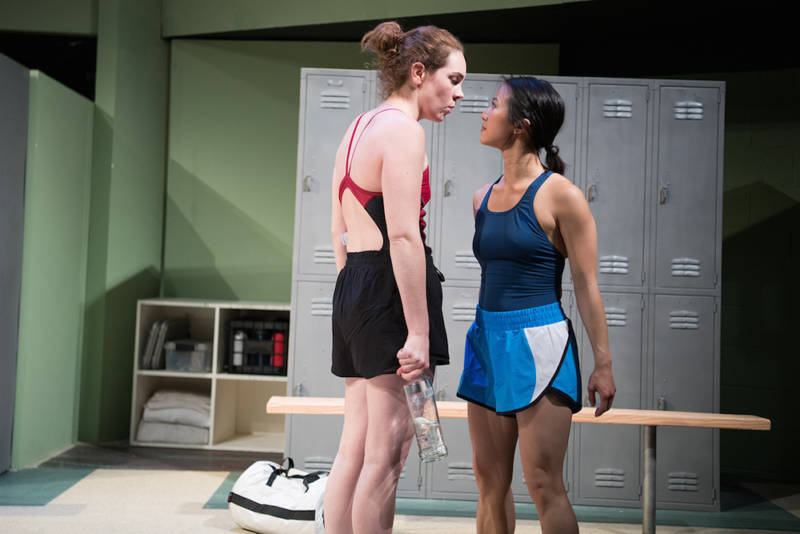
For those adults who may have forgotten (or blocked out the memories of) the heightened, frantic energy that often characterizes teenager-hood, Ng’s awkward, high-strung Ester is a good reminder. Her character, a star on her high school’s varsity swim team, is fast at laps but slow on reading social cues, and desperate to please—both as an athlete and as an accomplice in teammate Amy’s attempt to terminate her accidental pregnancy without adult intervention. Her nervous, gap-filling chatter feels very true-to-life; she wonders out loud what human organs might taste like to zombies, and abruptly confesses that she used to eat Play-Doh.
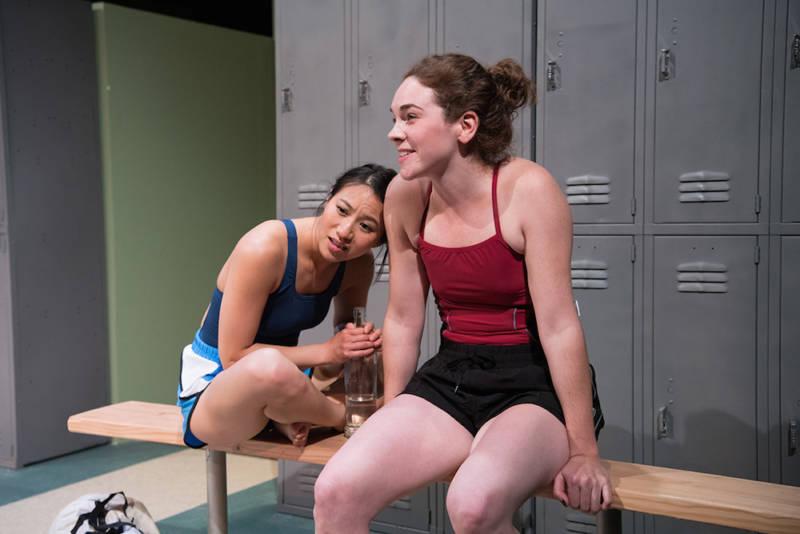
Brigham’s Amy is a little more enigmatic. Supposedly one of the popular girls, she more readily exudes the outsider vibe of a smoking-circle misfit, only fully embracing her top-of-the-pyramid status when her catty foil and best friend Reba (Amy Nowack) is around to posture for. For reasons she can barely articulate to herself, she’s asked Ester to help her in her moment of need rather than Reba, and the two of them spend as much time trying to navigate the new dynamic as they do trying to figure out the best way to induce a miscarriage—including stomach punching and, in a touch of the zeitgeist, Tide pods. Ultimately, it’s Amy’s self-loathing that characterizes her. She jealously covets Ester’s ability to prepare for a future beyond the end of the school year, and deprecates her own attempts at imagining the same.
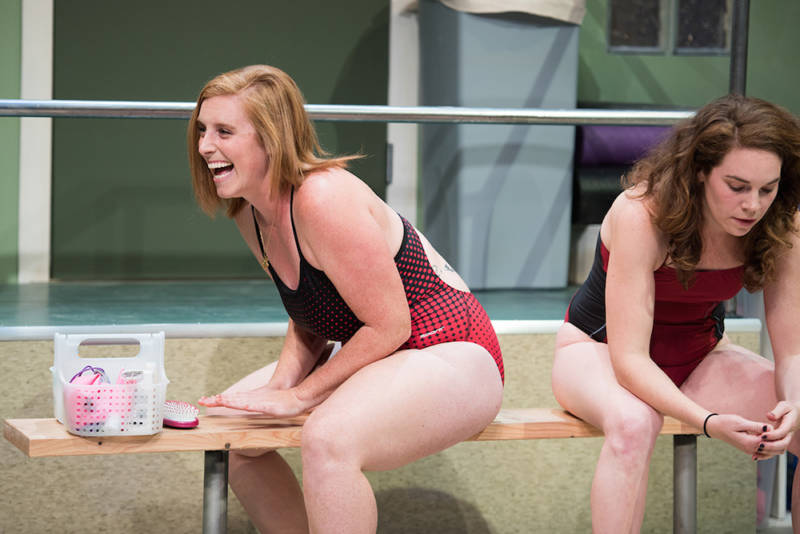
Not every scene lands the appropriate punch. The play takes a bizarre detour for a single scene outside of the locker room where Victor, an overly nebbish-y college kid played by a not-quite-young-enough Adam Magill, belabors a facet of Amy’s character that she’d already revealed herself in a previous scene. And in a later scene, Ester herself spills a secret that seems more like a forced attempt on Spiegel’s part to generate “drama” than to give her character another layer of complexity. On opening night, some of the sound and light cues (designed by Sara Witsch and Cassie Barnes, respectively) felt unsynced, and the brief appearance of the lone adult in the play—the school janitor (Don Wood)—could have done with a little more attention to detail in terms of his inexpert mopping.
